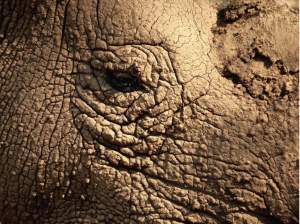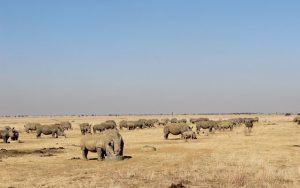FOREWORD by Dr Peter Oberem – President of Wildlife Ranching South Africa (WRSA)
“Those that fail to learn from history are doomed to repeat it,” Winston Churchill said. His adage those who care, that there is no longer any more room or time left for mistakes. The very existence of the species is under serious threat. The old conventional methods of protecting the rhino have over the past decade proven to be unaffordable, unsustainable and completely ineffective in stemming the losses, which are mainly due to poaching. Perhaps the remarkable successes in increasing the numbers of rhino in South Africa, which is a result of good cooperation between government and private game ranchers, have lulled us into complacency. It is time to rethink. In broad terms, the answer is simple: there is no single measure that will on its own be successful and sustainable. Those of us who care, and private game ranchers who show their commitment to the species and conservation as a whole by footing the enormous security bill with little or no return, have to employ all measures that:
Increase the risk to the poacher using:
- Increased preventative security (at a huge cost)
- Increased and improved policing and forensics
- Better prosecutions
- Stiffer penalties
Decrease the benefit to the poacher by:
- Reducing demand, if at all possible, as I equate the difficulty of changing deeply ingrained, 5 000-year-old cultural practices with changing views on the big religions of our world, which are only 2 000 years old.
- Creating a reduction in price (not easy due to the limited amount of horn available by the illegal route – in fact, our increased risk strategy actually works against this concept).
- Creating a legal, well-controlled rhino horn trade. This will have very many positive effects, not least for the poor rural communities in regions where rhino are still found, and for those who today are struggling to meet the huge financial demands of protecting our dwindling asset without compensation.
It is now time to ensure we learn from the mistakes of history, forget about everyone’s own particular preferences, and use all the tools available to us before it is too late for these iconic species.



